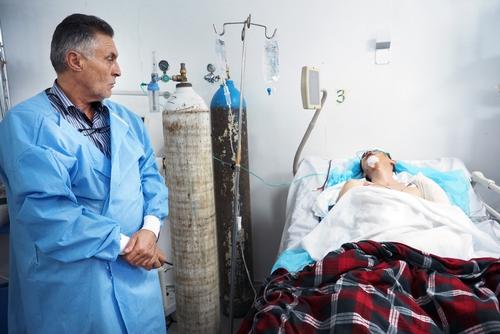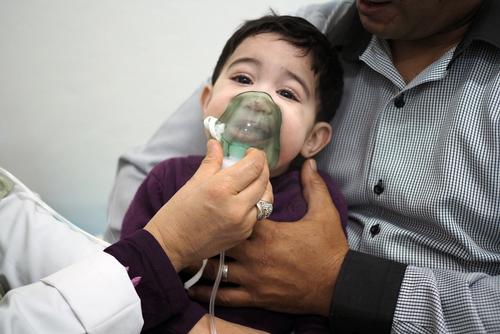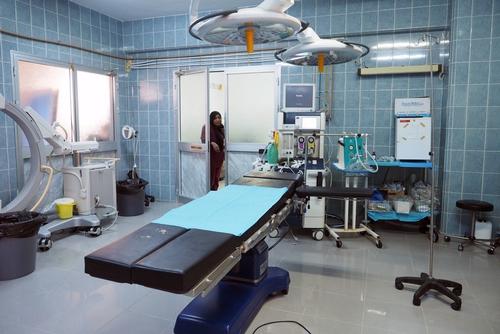Because of the conflict, Libya’s health care system is in disarray. MSF has set up operations in the east and west of the country to provide people access to medical services. Issiaka Abdou, project coordinator in Zuwara, describes the situation in this town in west Libya.
What brought MSF to Zuwara?
Zuwara is somewhat different to other places in Libya. A town of 45,000 people on the coast not far from the Tunisian border, it is an oasis of calm. That said, the health situation is of as much a concern as elsewhere in the country. In September last year, MSF began providing support to Zuwara Maritime Hospital, which was short of drugs and properly trained personnel. Similar to other places in Libya, many skilled health workers had fled, leaving nursing assistants to do the work of nurses. From September to February, we provided training and a technician to repair and maintain broken-down medical equipment to offset the shortage of qualified biomedical staff. We have thus been able to support the polyclinics in Jedi Ibrahim and Abu Kammash with providing consultations to children under the age of fifteen years. We also treat emergency cases in Abu Kammash and refer the most critical to Zuwara. Cash being a major issue in Libya, we are paying the wages of the staff at both polyclinics as they had not been paid for two to three months. Most health centres and hospitals do not even have enough funds to cover salaries or purchase drugs.
MSF has extended its activities beyond Zuwara – not an easy task?
Zuwara is peaceful, but just a short distance away, tensions are running high. To the east, the Sabratha-Tripoli road is the scene of frequent armed attacks and to the west, the border with Tunisia an hour away by road is often closed for security reasons or to prevent smuggling. And south of Zuwara, which is an Amazigh town, are areas inhabited by Arabs that are impossible to access due to tensions between tribes. Until the beginning of April, the road from Zuwara to Al-Jumail that is only 8 km away was closed because of roadblocks put up between the two towns. It finally re-opened and, at the end of April, we were able to start supporting the paediatric unit in a hospital in Al-Jumail with delivering primary and secondary care to children under the age of 15 years. Our medical team train medical and paramedical staff on various treatment protocols and supply the unit’s drugs.

Are there displaced people in the region?
Population movements are more frequent in the east — near Misrata and further towards Benghazi — as there are more armed clashes. But we are seeing migrants coming from Sudan, Nigeria, Mali and other West African countries. They usually travel by road via Niger and end up in the main port towns of Misrata, Tripoli, Tobruk, Zawiyah and Zuwara. They work to save their wages before deciding to try to board a boat to cross the Mediterranean to get to Europe, or to stay put and send money to their families. But the local authorities have formed a squad of masked men to hunt down people smugglers and nobody has managed to leave Zuwara since the beginning of the year. Migrants are visible as they are a sought-after source of cheap labour and many find work as street vendors. Vulnerable, they sleep in abandoned or half-built houses that have no sanitation. They have to buy water. Although medical care is free in Libya, they are not entitled to it and they have to pay for treatment. We are planning to extend our consultations in the clinic in Jedi Ibrahim to adults so that they can have access to health care.






